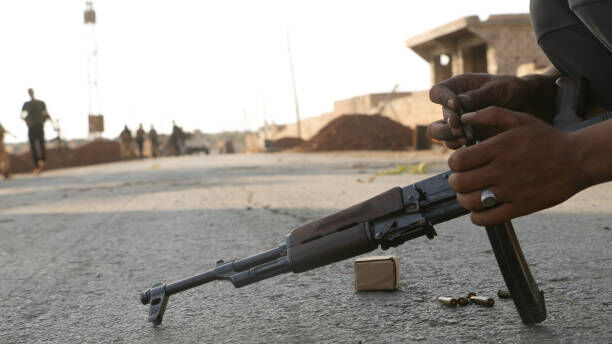Russia's Swift Measures in Syria to Contain Wagner Uprising
Moscow’s direct presence in Syria and the military, diplomatic, and other support it provides for Damascus are invaluable to the Assad regime, and Assad’s son Hafez graduated with honours from Moscow State University days after Prigozhin’s mutiny.
In the face of Yevgeny Prigozhin’s order last month for Wagner mercenaries to march on Moscow, authorities in Syria and Russian military commanders took swift measures to prevent an uprising in Russia from spreading to the Middle Eastern nation.
This was according to six sources familiar with the matter. Among these measures were the orders for mercenary fighters to sign new contracts with the Russian defence ministry or promptly leave Syria, Syrian officials and other sources based near deployed Russian forces said.
This was done to prevent the mutiny from disrupting the Russian military presence in the country that President Bashar al-Assad had relied on for so long. Russia first deployed its military forces and airpower to Syria in 2015, which ultimately helped Assad beat back rebels intent on toppling him.
Wagner had since been involved in combat missions and security for oil installations in Syria, with the first suspected Wagner deaths reported as early as 2015. Karam Shaar, senior fellow at the New Lines Institute, said that Assad was considering increasing the number of Wagner fighters to help him retake western Syria.
However, with the mutiny, he will now have to fall in line with the Kremlin’s position and lose autonomy in talking to each party separately. In response to the crisis, a group of Russian military officers were quickly dispatched to Syria to help take charge of Wagner forces there, according to a regional military source close to Damascus and two Syrian sources with knowledge of the events.
There were also reports of landlines and internet links being cut overnight from areas where Russian Wagner forces were deployed on the night of the mutiny. Wagner personnel in Syria were asked to sign new contracts in which they would report directly to Russia’s defence ministry and their pay would be cut.
Those who refused were flown out on Russian Ilyushin planes in the following days. The future of Wagner’s economic interests in Syria remains uncertain. However, Shaar said that the Kremlin will replace Prigozhin and take over his investments.
Moscow has denied any connection with Wagner, but the group has played a very public role in Russia’s war in Ukraine. Putin said after the mutiny that his government funds the group. In the aftermath, Syria’s leadership has restated publicly the importance of its military alliance with Russia.
Moscow’s direct presence in Syria and the military, diplomatic, and other support it provides for Damascus are invaluable to the Assad regime, and Assad’s son Hafez graduated with honours from Moscow State University days after Prigozhin’s mutiny.




